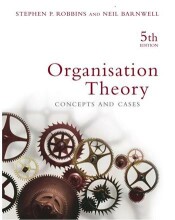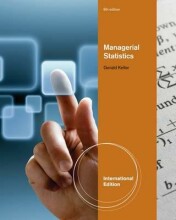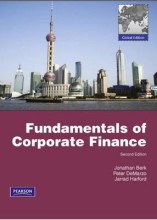Probability and randomness
8 important questions on Probability and randomness
What does it mean when events are 'disjoint/mutually exclusive'?
What is the 'complement' of an event?
What are collectively exhaustive events?
- Higher grades + faster learning
- Never study anything twice
- 100% sure, 100% understanding
What is the probability for an intersection of two disjoint events?
What is a union?
How do you calculate the probability of a union?
What is joint probability?
What are marginal probabilities?
The question on the page originate from the summary of the following study material:
- A unique study and practice tool
- Never study anything twice again
- Get the grades you hope for
- 100% sure, 100% understanding






























